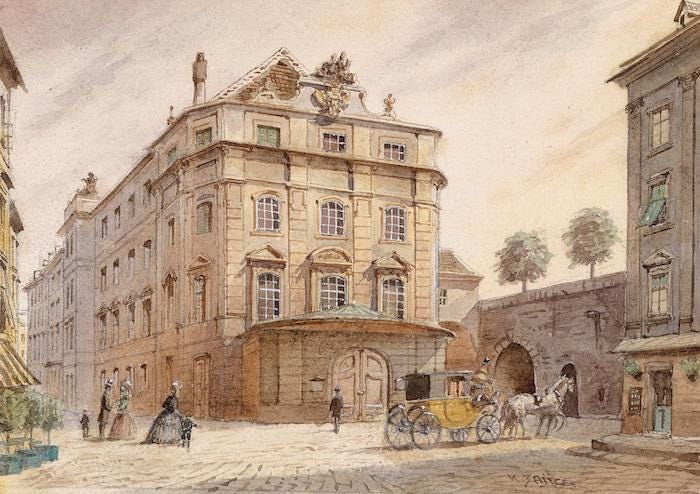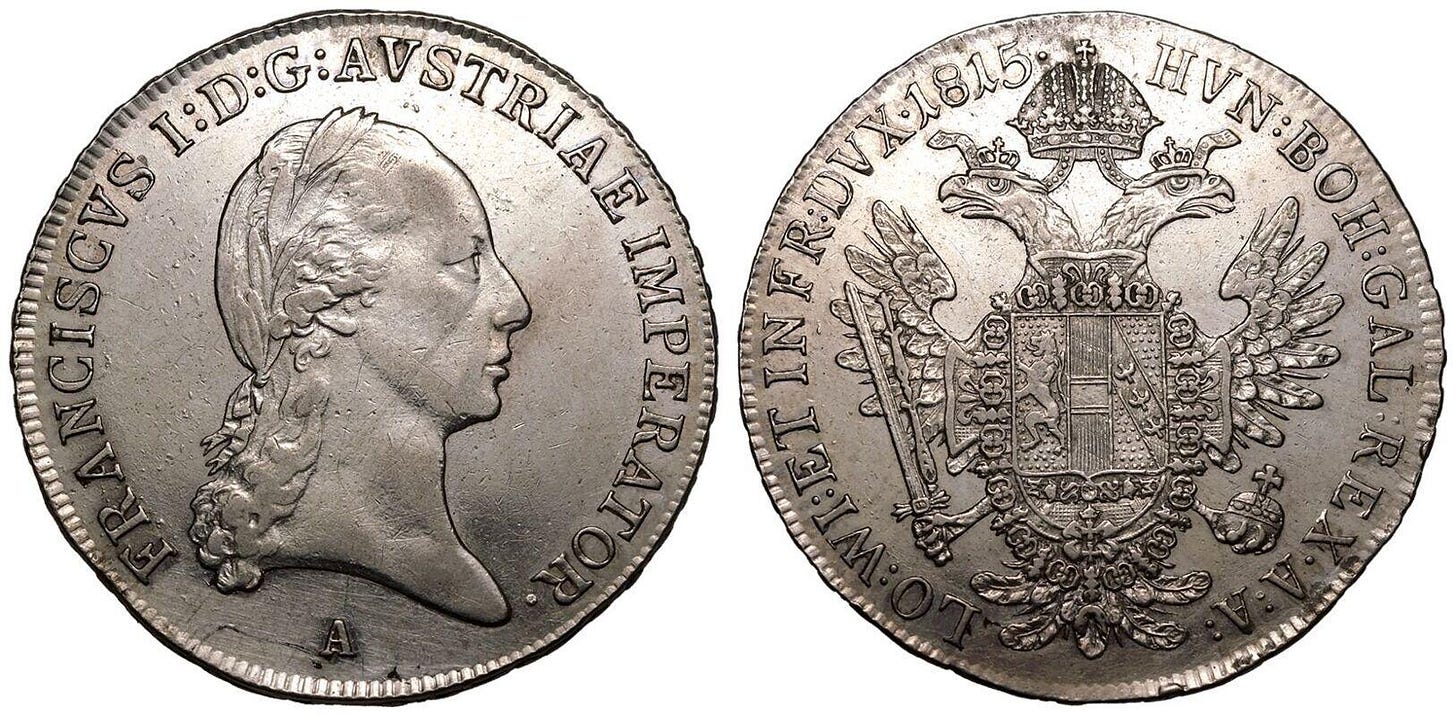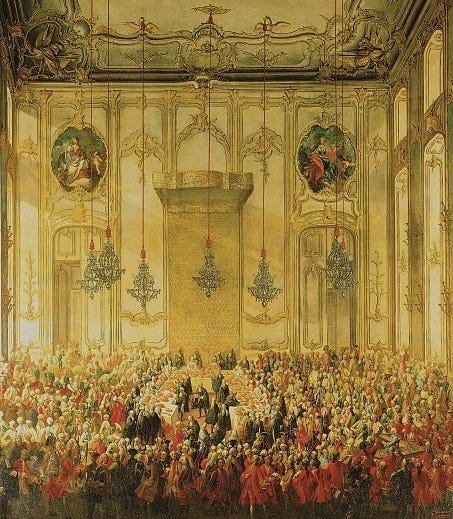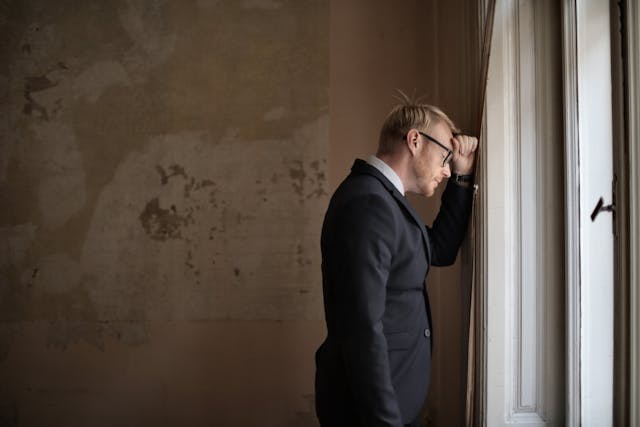The premiere of Beethoven’s Ninth Symphony was a triumph, but turmoil awaited the next day.
This Friday I attended a concert, Beethoven’s Ninth Symphony. The Big Ninth! It was grandiose, not only the music itself, but the whole orchestra with a choir of more than 75 singers. I can not tell how many times I did listen to this work in my life, but even this night I was able to discover details that I had missed before. Such beauty, so many layers and finesse.
As I was driving home I was thinking about all the attention the premieres enjoy. Rightly so, as these nights are the culminations of hard work for long weeks and months. But, what happens the next day? Sometimes nothing important, the usual next day routine of musicians, sometimes we do not know, but in the case of Beethoven’s Ninth, we do know a lot.
From triumph to turmoil
On a fateful evening, on May 7, 1824, at the Kärntnertor Theatre, Ludwig van Beethoven premiered his Ninth Symphony in Vienna, an event that would go down in history as a musical triumph – and a personal disaster for the composer. The concert hall was packed, the audience buzzing with anticipation. Vienna, a city he often called “superficial, fickle, hostile to his music,” still revered him as a genius.

The reception was more than imperial, with the audience erupting in cheers that even the police commissioner struggled to silence. The symphony, with its groundbreaking choral finale, resonated deeply, perhaps not only for its musical brilliance but also for its connection to the then-suppressed ideals of liberty and revolution found in Schiller’s Ode to Joy (the text and inspiration for the choral section).
Anton Schindler, Beethoven’s controversial assistant, later wrote in a conversation book,
“Never in my life did I hear such frenetic and yet cordial applause. Once the second movement of the symphony was completely interrupted by applause, and there was a demand for a repetition. The reception was more than imperial for the people burst out in a storm four times. At the last there were cries of Vivat!”
Beethoven, struggling financially after years of hardship, had high hopes on this concert to turn his fortunes around. He even tried to raise ticket prices, but the management refused. When civil servant and amateur musician Joseph Hüttenbrenner delivered the box office report the next day, the news was grim. Despite a full house, the profit was a mere 420 florins after covering the enormous costs of music copying and other expenses.
How much would 420 florins be today? For various reasons it is impossible to make a fully accurate calculation, but we can make an educated guess based on purchasing power. Using this method the 420 florins today would approximately be a 17 000 USD profit. The superstar composer of the time (and ever since), with arguably his most monumental work, in the contemporary capital of music, he made only this little money… Today, a well known singer, one from the temporary and always falling stars, can easily make 5-7 million (!) USD per night.

As Beethoven read the figures, he collapsed to the floor in despair. “His friends carried him to the sofa and sat by him late into the night. He seemed stunned, did not ask for food, could not speak”, the account recalls. He slept in his concert clothes, still in shock when his servants found him the next morning.
The invitation
Two days later, he invited Schindler, conductor Umlauf, concertmaster Schuppanzigh, and his nephew Karl to dinner at Zum Wilden Mann in Prater park. He ordered a rich meal, but his guests sensed trouble. As they sat down, Beethoven accused them of cheating him, claiming, “he knew for a fact that the management and Schindler had colluded to cheat him”. Umlauf and Schuppanzigh pointed out that Karl had overseen the box office, but Beethoven dismissed them, citing a “reliable witness” – likely his brother Johann, who despised Schindler. The confrontation escalated until Umlauf, Schindler, and Schuppanzigh left, their dinners untouched. “Beethoven and Karl finished their bitter repast alone, with nobody to rage at,” Schindler recalled, “but the waiters and the trees of the Prater.”
Beethoven, however, was not yet done with Schindler. Soon after, he wrote him, adding to his humiliation: “I do not accuse you of having done anything wicked in connection with the concert. But stupidity and arbitrary behavior have ruined many an undertaking. Moreover I have on the whole a certain fear of you, a fear lest someday through your action a great misfortune may befall me . . . that day in the Prater I was convinced that in many ways you had hurt me very deeply.” He added, “For owing to your vulgar outlook how could you appreciate anything that is not vulgar?!” Though Schindler resumed serving him, their relationship never fully recovered.
In comes the music critic
The music itself received mixed reviews. The Wiener Allgemeine Musikalische Zeitung praised Beethoven’s genius, noting, “His rich, powerful fantasy holds sway with lofty freedom in the realm of tones familiar to it, and it raises the listeners on its wings into a new world that excites amazement.” However, it criticized the performance: “Neither the chorus nor the solo singers were sufficiently prepared for such difficult and deeply intricate music . . . the sound faded away and dissipated in the bare spaces [of the hall].”
The Leipzig Allgemeine Musikalische Zeitung was equally awestruck but honest: “The effect was indescribably great and magnificent, jubilant applause from full hearts was enthusiastically given the master, whose inexhaustible genius revealed a new world to us . . . Even the work’s most glowing worshipers . . . are convinced that this truly unique finale would become more incomparably imposing in a more concentrated shape, and the composer himself would agree if cruel fate had not robbed him of the ability to hear his creation.”
Two weeks later, on May 23, the Ninth Symphony was performed again at the Redoutensaal in the Hofburg. The Redoutensaal was a prestigious location, often used for court events and significant public performances. Unlike the Kärntnertor Theater, which was a dedicated opera house with a capacity of about 1,000, this was a grand, multi-purpose hall that could accommodate a larger audience. Beethoven’s decision to hold a second performance there suggests an attempt to reach a broader or perhaps more elite audience, possibly to improve his financial outcome.

The program for the May 23 concert didn’t feature the entire Ninth Symphony as performed on May 7. Historical accounts indicate that only portions of the symphony were included, the first three movements; alongside other works like the overture to The Consecration of the House (Op. 124) and parts of the Missa Solemnis (Op. 123).
Financially, the second concert did not manifest Beethoven’s hopes either. Some estimates suggest only around 300–400 florins of profit, though exact figures vary. This reinforced Beethoven’s bitterness about the Viennese public and his collaborators, as he felt underappreciated despite his monumental achievements.


